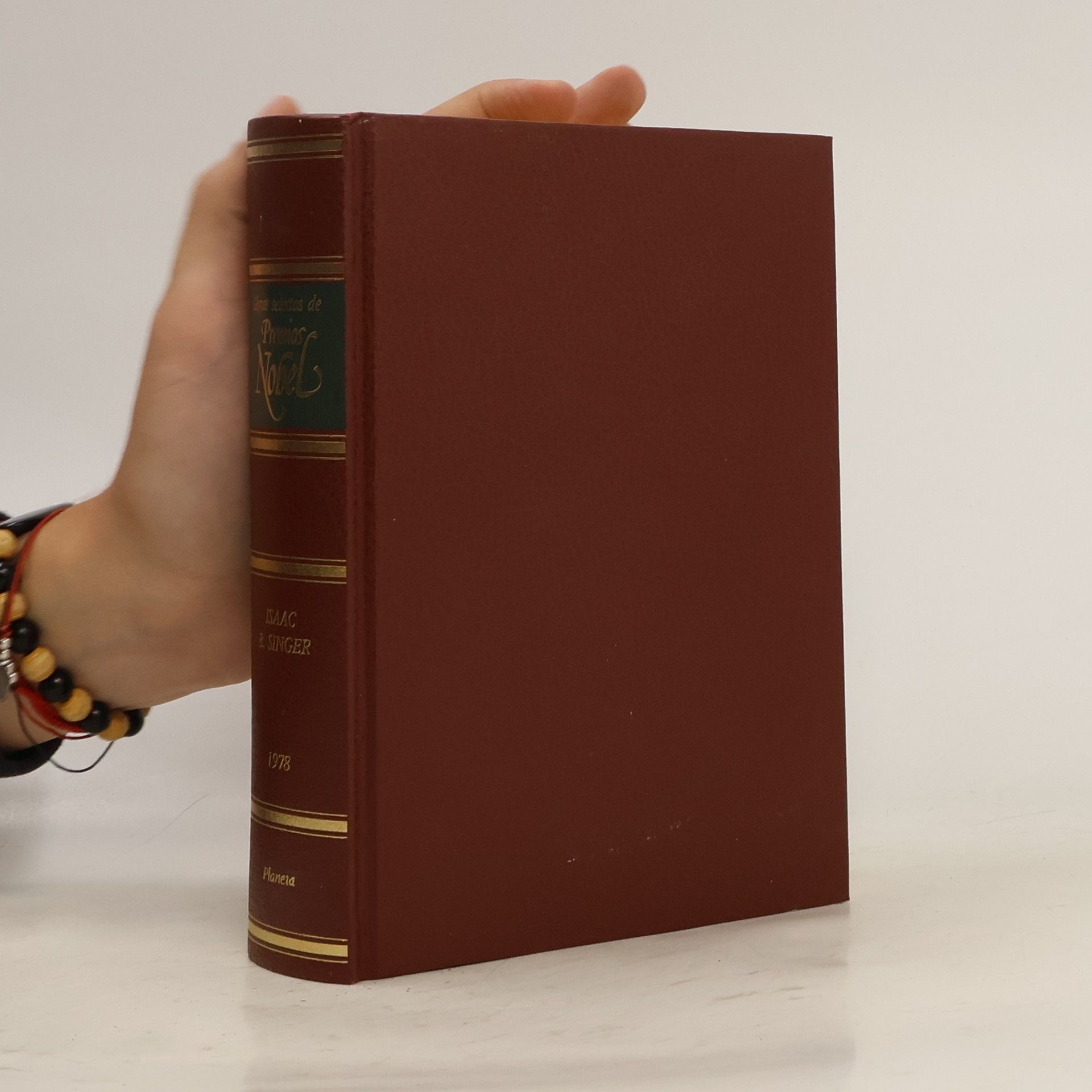El Esclavo
- 222 páginas
- 8 horas de lectura
Isaac Bashevis Singer fue un maestro narrador, célebre por su evocadora ficción corta que dio vida al mundo de la vida judía de Europa del Este. Figura clave de la literatura yiddish, sus narrativas profundizan en temas profundos como la fe, el destino y las complejidades de la condición humana. La prosa de Singer es rica y resonante, atrayendo a los lectores a mundos tan familiares como exóticos. A través de su voz única, exploró el espíritu perdurable y el tapiz cultural de su herencia, dejando una marca indeleble en el panorama literario.







"Una memoria asombrosamente intima de los itinerarios internos del autor de Sombras sobre el Hudson." Desde el final de La Primera Guerra Mundial, hasta el Nueva York de los años treinta, Isaac Bashevis Singer retrata la primera época de su vida en esta emotiva autobiografía. En la primera parte, "Un niño en busca de Dios", el autor rememora su infancia en Radzymin como hijo de un rabino ortodoxo absorbido por las primeras lecturas científicas y filosóficas. Con el tiempo, y después de trasladarse a Varsovia para probar suerte con la escritura, las mujeres llegaron a obsesionarle tanto como la persecución de la verdad y el conocimiento, y en "Un joven en busca de amor" recoge las sorprendentes y dramáticas intrigas de sus primeros amoríos. Por ultimo, en "Perdido en America", el autor relata los oscuros años de soledad y depresión del principio de su exilio en Estados Unidos, donde emigra desde Polonia en los albores de la Segunda Guerra Mundial. Desde la primera hasta la última pagina, Amor y exilio arroja una nueva luz sobre la vida y la obra del insigne escritor polaco.
During seventeenth century, Jacob, a slave and cowherd in a Polish village, falls in love with Wanda, his master's daughter. Even after he is ransomed, he finds he can't live without her, and the two escape together to a distant Jewish community. Racked by his consciousness of sin in taking a Gentile wife and by the difficulties of concealing her identity, Jacob nonetheless stands firm as the violence of the era threatens to destroy them.
Una ventana al mundo reúne los relatos inéditos de Isaac Bashevis Singer, premio el Nobel de Literatura en 1978.Este volumen reúne seis relatos del premio Nobel Isaac Bashevis Singer, seis obras maestras inéditas (a excepción de «El huésped», publicado en nuestra colección Minilecturas). El mundo descrito por Singer en sus novelas y cuentos evidencia la destrucción de una cultura amenazada, pero esta destrucción no la describe como como un proceso procedente del mundo exterior, sino del propio interior de las familias judías, más permeables a la modernidad de lo que se creía. Estos cuentos, que mezclan la vida en su Polonia natal —se crio en un recurrente escenario de violencia antisemita—, el desencanto ideológico, el conflicto con el estalinismo y la emigración a los Estados Unidos huyendo del nazismo, muestran que Isaac Bashevis Singer es uno de los grandes maestros del relato de todos los tiempos.
Like Isaac Bashevis Singer's fiction, this poignant memoir of his childhood in the household and rabbinical court of his father is full of spirits and demons, washerwomen and rabbis, beggars and rich men. This rememberance of Singer's pious father, his rational yet adoring mother, and the never-ending parade of humanity that marched through their home is a portrait of a magnificent writer's childhood self and of the world, now gone, that formed him.
Collection of stories from winner of the Nobel Prize for Literature.